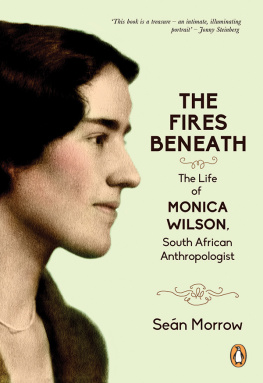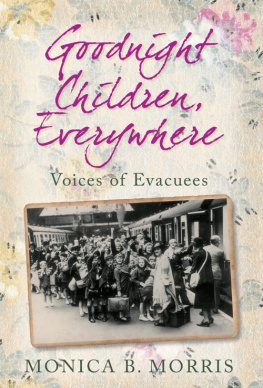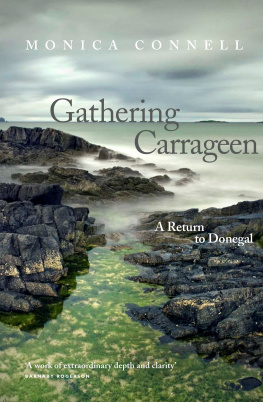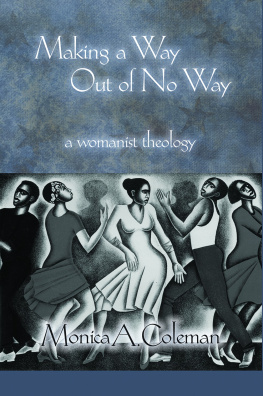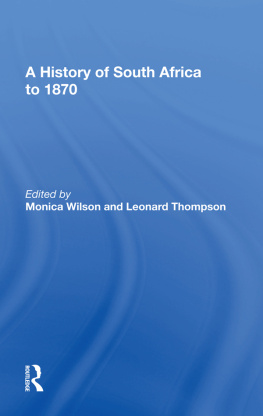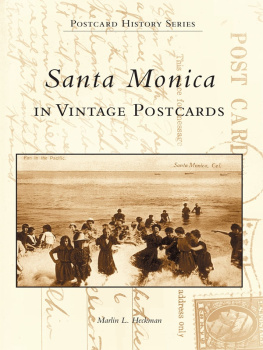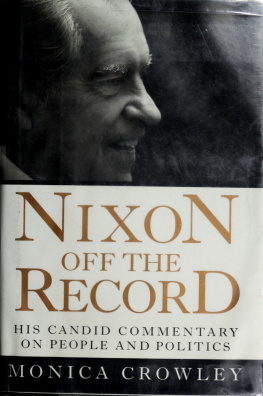
Published by Penguin Books
an imprint of Penguin Random House South Africa (Pty) Ltd
Reg. No. 1953/000441/07
The Estuaries No. , Oxbow Crescent, Century Avenue, Century City, 7441
PO Box 1144 , Cape Town, 8000 , South Africa
www.penguinbooks.co.za
First published 2016
Publication Penguin Random House 2016
Text Sen Morrow 2016
All rights reserved. No part of this publication may be reproduced, stored in a retrieval system or transmitted, in any form or by any means, electronic, mechanical, photocopying, recording or otherwise, without the prior written permission of the copyright owners.
The lines from T.S. Eliots The Dry Salvages on are reproduced with permission of Faber & Faber Ltd.
PUBLISHER : Marlene Fryer
MANAGING EDITOR : Robert Plummer
EDITOR: Lynda Gilfillan
PROOFREADER : Bronwen Maynier
COVER DESIGNER: Gretchen van der Byl
TEXT DESIGNER : Ryan Africa
TYPESETTER : Monique van den Berg
INDEXER : Sanet le Roux
ISBN 978 1 77609 039 6 (print)
ISBN 978 1 77609 040 2 (ePub)
ISBN 978 1 77609 041 9 (PDF)
Contents
Ah, what is Marriage, says each pouting maid,
When she who wedded with the soldier hides
At home as good as widowed in the shade
They have not known; they are not in the stream;
Light as the flying seed-ball is their play,
The silly maids! and happy souls they seem;
Yet Grief would not change fates with such as they.
They have not struck the roots which meet the fires
Beneath, and bind us fast with Earth, to know
The strength of her desires,
The sternness of her woe.
Rain! O the glad refresher of the grain!
And welcome waterspouts, had we sweet rain!
from George Meredith,
Earth and a Wedded Woman (1887)
Preface
Monica Wilson, ne Hunter, was the most important social anthropologist of her time in South Africa, with an international reputation. This book is her story and that of her husband Godfrey Wilson, up to his self-inflicted death in 1944 , and beyond through Monicas debate with his shade until her own death in 1982 . It is almost a joint biography.
Like all biographies, this is an interpretation, shaped by experience and personal history. An Irish background with many British links, and an undergraduate education at Trinity College, Dublin, in the 1960 s still reminiscent of Oxford or Cambridge, helped me understand aspects of Monica and Godfreys lives. Ireland leaves no doubt regarding the significance of religion, an important theme in this book. Substantial periods in Zambia and Malawi contributed to my appreciation of the Wilsons Central African experience. Arriving as a teacher in rural Zambia in 1974 , woefully ignorant of the African history I was to teach, I discovered in the school library Godfrey Wilsons An Essay on the Economics of Detribalization in Northern Rhodesia . This was my unusual introduction to Zambian history. The ten years I spent at the University of Fort Hare from 1992 familiarised me with Monicas milieu at Lovedale, Hogsback and Fort Hare itself.
An author assumes a considerable responsibility in writing about people who still live in the memories of family, friends and colleagues. I owe a great debt to Francis and Tim Wilson, Monica and Godfreys sons, and to their respective wives, Lindy and Ilse. Francis and Tim provided unlimited access to personal correspondence and other documents and made no attempt to influence my interpretation.
I am grateful to the staff at the various archives listed in the sources at the end of this book. In particular, the friendliness and expertise of the staff at the Department of Manuscripts and Archives at the University of Cape Town (UCT) ensured that working there was a pleasure. Led at the time by Leslie Hart, herself highly knowledgeable about Monica and Godfrey, staff members Andr Landman, Isaac Ntabankulu and Bobby Eldridge were unfailingly helpful. Lionel Smidt assisted at the UCT Administrative Archives. Yves Hberli, managing the Moravian Mission Archives, Rungwe, Tanzania, at the time of my visit, was exceptionally hospitable and helpful.
I could not have carried out the research for this book without the grant I received from the National Research Foundation. I would particularly like to thank Lebusa Monyooe for his assistance. At the University of Fort Hare, Rina and Michelle Flanegan disbursed grant funds with amiable efficiency. I am privileged to be an adjunct professor of history at Fort Hare, and I wish to thank Professor Derrick Swartz and Dr Mvuyo Tom, the formers successor as vice-chancellor and current incumbent, for their assistance and support. Thanks are also due to professors Gideon de Wet and Wilson Akpan, as well as Mzi Xoseka.
It has been a pleasure to work with Penguin Random House, the publishers of this book. In particular, I am grateful for the professionalism of managing editor Robert Plummer and publisher Marlene Fryer. Editor Lynda Gilfillan addressed the text with insight and sensitivity.
I would like to thank everyone in the list of interviewees at the end of the book. Sadly, some have died since I interviewed them. Some shared not only their recollections of Monica but their homes with me, among them Dr Gaositwe Chiepe in Gaborone, the late Professor Colin Murray in New Mills, Derbyshire, Dr David Brokensha in Fish Hoek and the late Michael Elton Mills in Knysna.
Friends, hosts and historical and anthropological colleagues, often all three combined, have contributed in various ways to the biography. I wish to thank the following in particular: professors Megan Vaughan in London and John McCracken in Stirling; Michael and Linda King and Swithun Goodbody of Dublin and Ballydehob, respectively; Professor Peter Kallaway, Professor Christopher Saunders and Pam Allen, Rose Jackson, John and Biddy Greene, Dr Ken Hughes and Professor Andrew Bank in Cape Town; professors Chris de Wet and Paul Maylam in Grahamstown; Dr Brown Maaba and John Pampallis in Johannesburg; Moeketsi Letseka, Professor Graham Duncan and professors Louis and Petro van Niekerk in Pretoria; Professor Mitch Strumpf in Dar es Salaam; and professors Ed Steinhart and Anita Fellman in Vancouver. Professor Aidan Clarke and the late Dr John de Courcy Ireland in Dublin were important early influences. Timothy Mwakasekele provided me with information in advance of a journey to buNyakyusa, and Abel Ambakisye accompanied me to Monica and Godfreys research sites.
I owe a special debt to Chris Saunders, with whom I co-wrote an earlier version of
Richard Brown, in Brighton, is in a category by himself. As makes clear, with exceptional generosity, he made available his research notes on Godfrey Wilson and Max Gluckmans careers in Northern Rhodesia. Also, he and Lynne Brown provided me with accommodation on various research trips to Britain.
In ways both direct and indirect, various family members provided the support that made this book possible: Malachy and his late and deeply regretted wife Julia, Patrick and his wife Aimee, my sister Clarissa, my mother-in-law Pat Snow and the late Heather Frielinghaus, Julias mother. My wife Barbara instructed me to spare her the usual clichs. Simple description then: this book has benefited enormously from her subtle historical sensibility, her keen social observation, and her superb editing skills.
Monica Wilson bordered on dyslexia, and I have preserved most of her spelling as intrinsic to her writing; for readability, however, I have made certain corrections, for example replacing its with its where appropriate.
In referring to African languages, certain prefixes are used: isiXhosa denotes the Xhosa language; chiBemba the Bemba language, and so on. Similarly, buNyakyusa is the area inhabited by the Nyakyusa people, and luBemba the territory of the Bemba people.
Next page
